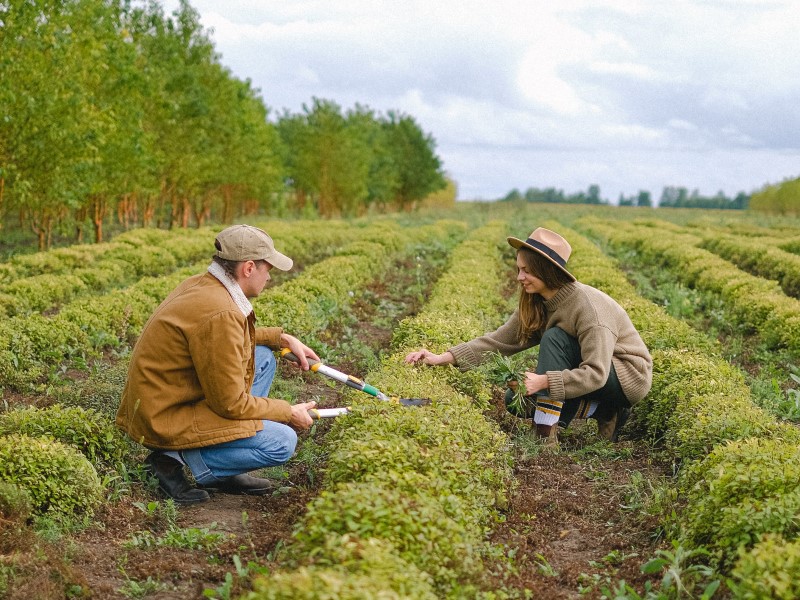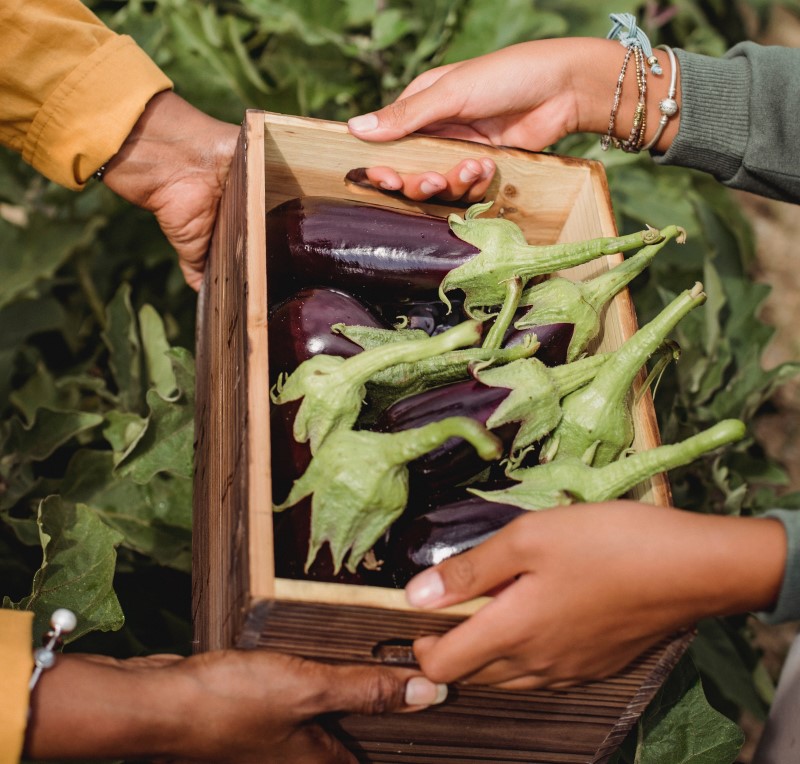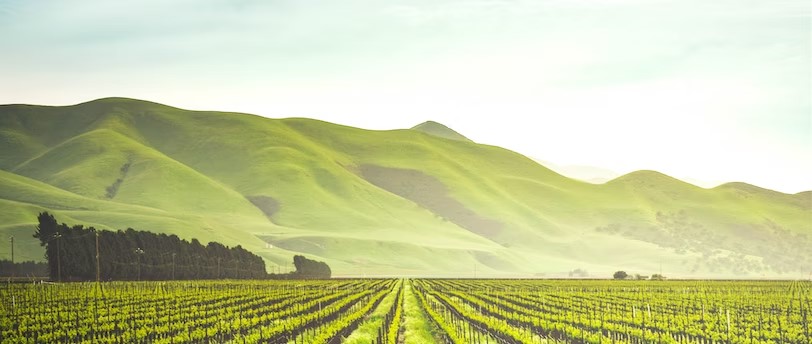We’re standing at the brink of a new age in Australian agriculture, where sustainable and eco-friendly farming practices are not just buzzwords but realities that we strive to achieve. Organic farming – a term that encapsulates these ideals – is gaining rapid momentum down under. It’s not just a passing trend, it’s our commitment to healthier food production methods and a more resilient environment. We’re here to delve into this invigorating world of organic farming in Australia, bringing you insights about its growth, methodologies, benefits, challenges and future prospects.
Why should you care about organic farming? Well, it’s not merely about growing food; it’s about nurturing healthy soils and ecosystems for future generations. It’s also about supporting farmers who consciously grow food without synthetic chemicals or Genetically Modified Organisms (GMOs). At the same time, it’s about advocating for the consumer’s right to know what they’re putting on their plates. Join us as we explore the fascinating realm of organic food production in Australian agriculture – understanding its impact on our health, environment, and economy. Let’s dive together into this journey towards healthier living and sustainable consumption.
Key Takeaways
- Australia has experienced significant growth in organic farming, with more certified organic farmland than any other country.
- Organic farming in Australia focuses on quality and sustainability, resulting in delicious and environmentally-friendly produce.
- Organic farming benefits the environment by reducing pollution, increasing biodiversity, and improving soil health.
- Supporting organic farming in Australia helps farmers, prioritizes consumer health, and strengthens rural communities.
Table of Contents
The Growth of Organic Farming in Australia
Over recent years, you’d be amazed to see how organic farming has blossomed in Australia, making healthier and eco-friendly options more accessible than ever. It’s a booming industry that’s gone from niche to mainstream as more Aussies embrace the benefits of organically grown produce. We’ve seen an impressive growth rate; Australia now boasts more certified organic farmland than any other country in the world! Using statistics about organic production in our country from 2018, the amount of current certified organic hectares is 5,645,000 ha – this figure accounts for 54% of the world’s certified organic hectares. This growth isn’t just good for our health—it’s also helping to revitalise our rural communities by creating new jobs and opportunities.

But it’s not just about size – what makes Australian organic farming truly remarkable is its commitment to quality and sustainability. From sun-ripened tomatoes bursting with flavour to crisp apples picked at their peak of freshness – every morsel tells a story of care and respect for nature. Our farmers are passionate advocates for soil health, biodiversity, animal welfare and reducing carbon emissions, making eating a delicious choice organically and one you can feel good about. Using organic products is one step towards a sustainable future where food production aligns with our health and environmental stewardship values.
Natural Techniques in Organic Food Production
Like the earth whispering secrets to the seeds, natural techniques in cultivating crops encompass practices such as crop rotation and composting, painting a picture of sustainable farming that is both environmentally friendly and nutrient-rich. These methods preserve our soil’s essential nutrients and protect our planet by reducing harmful greenhouse gas emissions, water pollution, and soil degradation. We’re talking about a farming system that connects us to nature, where we learn from her rhythms rather than imposing ours on hers. It’s about working with mother nature to grow food sustainably rather than deplete her resources.
Imagine stepping into an organic farm: you are greeted by vibrant green fields teeming with life – insects buzzing around blossoming flowers, birds chirping high up in trees and earthworms enriching the soil beneath your feet. You taste the sweetness of freshly picked fruits or vegetables, knowing they’ve been grown without synthetic fertilisers or pesticides; instead, nourished by carefully managed compost heaps rich in microorganisms that boost soil fertility naturally. That’s what organic farming offers us; it’s not just about producing healthier food – it’s also about creating healthier ecosystems. So let’s champion these natural techniques used in organic food production in Australia because they promise us a future of chemical-free, bountiful harvests and a planet brimming with life!
Benefits of Organic Farming for the Environment
When we embrace nature’s way, we create a healthier plate and nurture a greener planet; with less pollution, more biodiversity, and improved soil health. Organic farming in Australia is doing precisely that – it’s a game-changer for our environment. It doesn’t use synthetic pesticides or fertilisers, which means fewer harmful chemicals seep into our waterways and soils. Instead, organic farmers tap into the magic of nature itself, using composting and crop rotation to enrich the soil naturally. This leads to lower greenhouse gas emissions compared to conventional farming methods. And guess what? Healthier soils are better at storing carbon too!
But there’s more! Organic farms are havens for wildlife, fostering greater biodiversity than non-organic farms. These farms create habitats for all sorts of creatures, from birds and bees to worms and butterflies, playing a crucial role in preserving our ecosystems. Moreover, by advocating organic farming practices across Australian food cultivation, we’re also promoting responsible water management that safeguards our precious water resources from contamination by synthetic chemicals. Let’s champion this environmental stewardship that is good for us and secures a sustainable future for generations to come!

Supporting Farmers and Consumers in Australia
Embracing sustainable practices isn’t just about caring for our planet, it’s also about backing our hardworking farmers and prioritising consumers’ health across the country. We can’t underestimate the power of organic farming in enriching soil quality, preserving biodiversity, and reducing toxins in our food chain. By supporting Australian farmers who champion these regenerative methods, we’re investing in their livelihoods and nurturing a more resilient food network that benefits us all. It’s not merely an environmental initiative; it’s a commitment to safeguarding our nation’s food security while fostering stronger rural communities.
Organic farms are only certified after they have been operating according to organic principles for 3 years. However, the use of the word ‘organic’ is not regulated in Australia, so it is important to make sure that products you buy come from certified growers and producers.
BETTER HEALTH CHANNEL
We believe that every Australian has a right to fresh, wholesome food and transparency about its origins. Organic farming offers this assurance, putting consumers back at the heart of food production with clear labelling and high animal welfare and pesticide use standards. Empowering Australians with choice is vital – each time we opt for organically grown products, we vote for healthier bodies, happier animals, robust local economies and thriving earth. Let’s make conscious choices today that will nourish us now and sustain future generations tomorrow!
Challenges and Future Opportunities in Organic Agriculture
You’ve probably heard the saying, ‘No pain, no gain,’ right? Well, this rings true in the field of regenerative land management too. It’s not all rainbows and butterflies – there are significant hurdles to jump over, but these challenges also present exciting opportunities for innovation and growth. For instance, a 2016 report by FiBL showed that globally only 1.2% of agricultural land was managed using regenerative methods. This minuscule percentage might seem discouraging initially; however, look at it from another perspective – it means enormous potential for expansion and transformation is waiting to be tapped into!
In Australia specifically, organic farming faces its fair share of obstacles like high input costs and lack of market access due to geographical constraints. However, we’re not ones to back down easily! The future looks promising with rising consumer demand for organic produce and increasing awareness about sustainable practices among farmers. We’ve got cutting-edge technologies up our sleeves, like precision farming systems which can help us overcome some of these barriers. Plus, with government policies now starting to recognise the value of organic farming in addressing climate change issues and preserving biodiversity – things are definitely looking up! As we push through these challenges together, remember that each step forward brings us closer to creating a healthier planet and more vibrant communities across Australia. So here’s our rallying call: let’s roll up our sleeves and dig deep because the future of Australian agriculture is organic!

Frequently Asked Questions
Q: What is organic farming in Australia?
A: Organic farming in Australia refers to growing and producing food and other agricultural products without synthetic chemicals such as pesticides, herbicides, and fertilizers. Instead, organic farmers rely on natural methods and techniques to nurture soil health, protect the environment, and produce high-quality organic food products.
Q: Are there any specific organic standards in Australia?
A: Yes, Australia has specific organic standards that ensure the integrity and quality of organic products. Australian Certified Organic (ACO), the country’s leading organic certification body, regulates the organic standard in Australia. It is important to note that, since the word ‘organic’ is not regulated in Australia, you need to ensure that the product you are buying is marked ‘certified organic’.
Organic produce being exported needs to be certified and meet national standards; however, domestic and imported foods are not held to the same standards. In this case, certification is only voluntary.
Q: What is the difference between organic and biodynamic farming?
A: While both organic and biodynamic farming methods share similar goals of producing food without synthetic chemicals, biodynamic farming goes beyond organic farming by incorporating additional practices based on the principles of anthroposophy. Biodynamic farming includes incorporating specific planting and harvesting cycles, using herbal and mineral preparations, and considering cosmic forces and rhythms in farming practices.
Q: How do Australian organic farmers manage pests and diseases?
A: Australian organic farmers employ various integrated pest and disease management strategies. These may include crop rotation, maintaining healthy soil and plant diversity, encouraging natural predators, using natural deterrents, and implementing good hygiene practices to prevent the introduction and spread of pests and diseases.
Q: Do organic farms in Australia raise livestock?
A: Yes, organic farms in Australia do raise livestock. Organic livestock must be reared under organic management practices, including providing access to pasture, natural and organic feed, and avoiding synthetic growth hormones and antibiotics. Organic livestock farmers must also adhere to specific animal welfare standards.
Q: How can I buy organic products in Australia?
A: There are several ways to buy organic products in Australia. You can look for products that carry the Australian Certified Organic logo, which guarantees that the product meets the organic standards set by ACO. You can also visit organic markets, local organic farms, or organic food stores to purchase organic products.
Q: Is there a national standard for organic farming in Australia?
A: Australia has a national standard for organic farming called the National Standard for Organic and Biodynamic Produce. This standard provides guidelines and requirements for organic certification and ensures consistency in organic farming practices nationwide.
Q: What is an organic management plan?
A: An organic management plan is a document that outlines the specific practices and procedures an organic farmer will implement to meet the organic standards. It includes details about crop rotation, pest and disease management, soil health practices, and other requirements specific to organic farming.
Q: Are there any organizations supporting organic farming in Australia?
A: Yes, several organizations support and promote organic farming in Australia. One such organization is Biological Farmers of Australia (BFA), which advocates for organic farming practices, provides education and networking opportunities for growers and represents the interests of organic producers nationally and internationally.
Q: Is organic farming in Australia free from Genetically Modified Organisms (GMOs)?
A: Yes, organic farming in Australia prohibits the use of genetically modified organisms. Organic farmers are required to follow strict guidelines to ensure that their products are not genetically modified and do not contain genetically modified ingredients.
Conclusion
We’re at a crossroads. The symbol of our future is in the rich, fertile soil of organic farming, without the scourge of chemically-laden pest control. It’s a testament to our commitment to safeguarding our environment and supporting Aussie farmers. It’s not just about healthier food; it’s a lifestyle we choose for ourselves and generations.
Yet we face challenges. But with these come great opportunities for growth and innovation. Supporting the organic industry isn’t just an option – it’s a responsibility that we, as Aussies, should passionately embrace.
About the Author

ALEX
Alex is an adventurous guy in his early 30s who embodies a touch of the hippie. Passionate about social and environmental causes, he’s managed to travel the world, from immersing himself in Japanese culture for a year to embarking on a six-month backpacking escapade through Peru. Alex loves to learn and has taken numerous courses in Environmental Science and Conservation.
Alex’s commitment to recycling fuels his mission to repurpose discarded items. As a result, he favours garage sale treasures over department stores. He prefers walking and biking to driving. Alex spreads awareness about organic living through Just Organics, joined by his like-minded friend Charlie.
